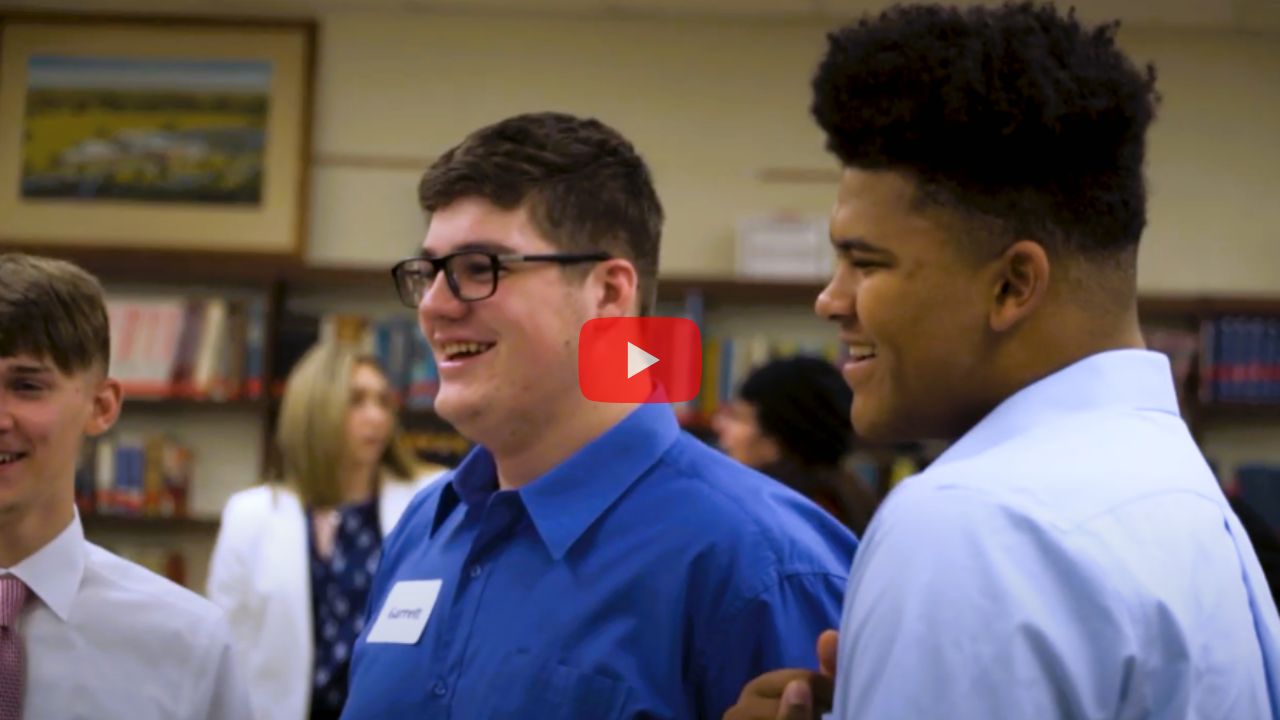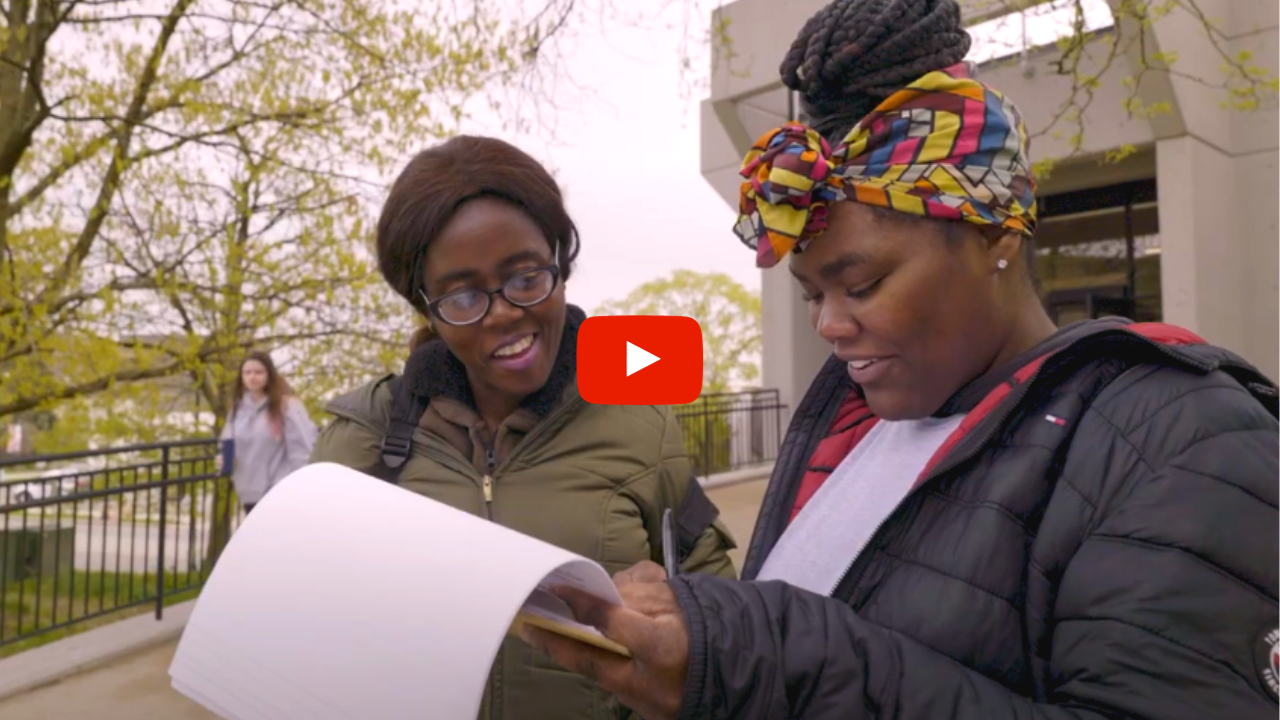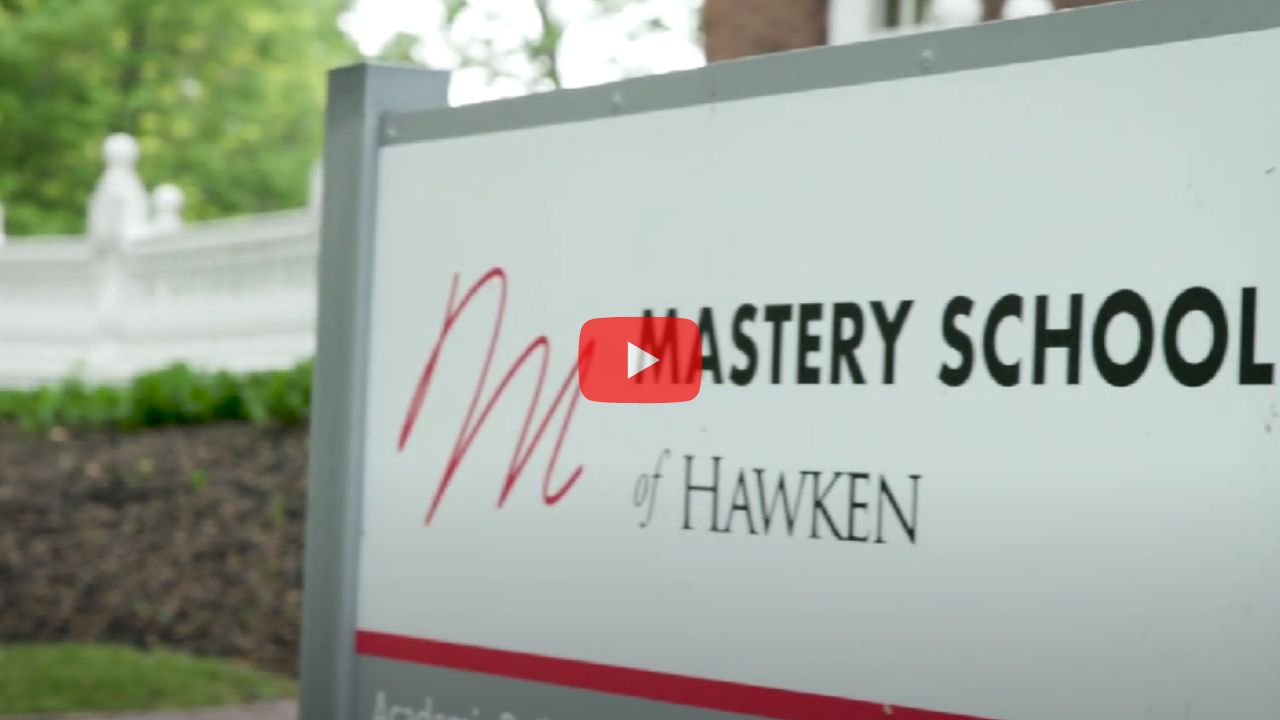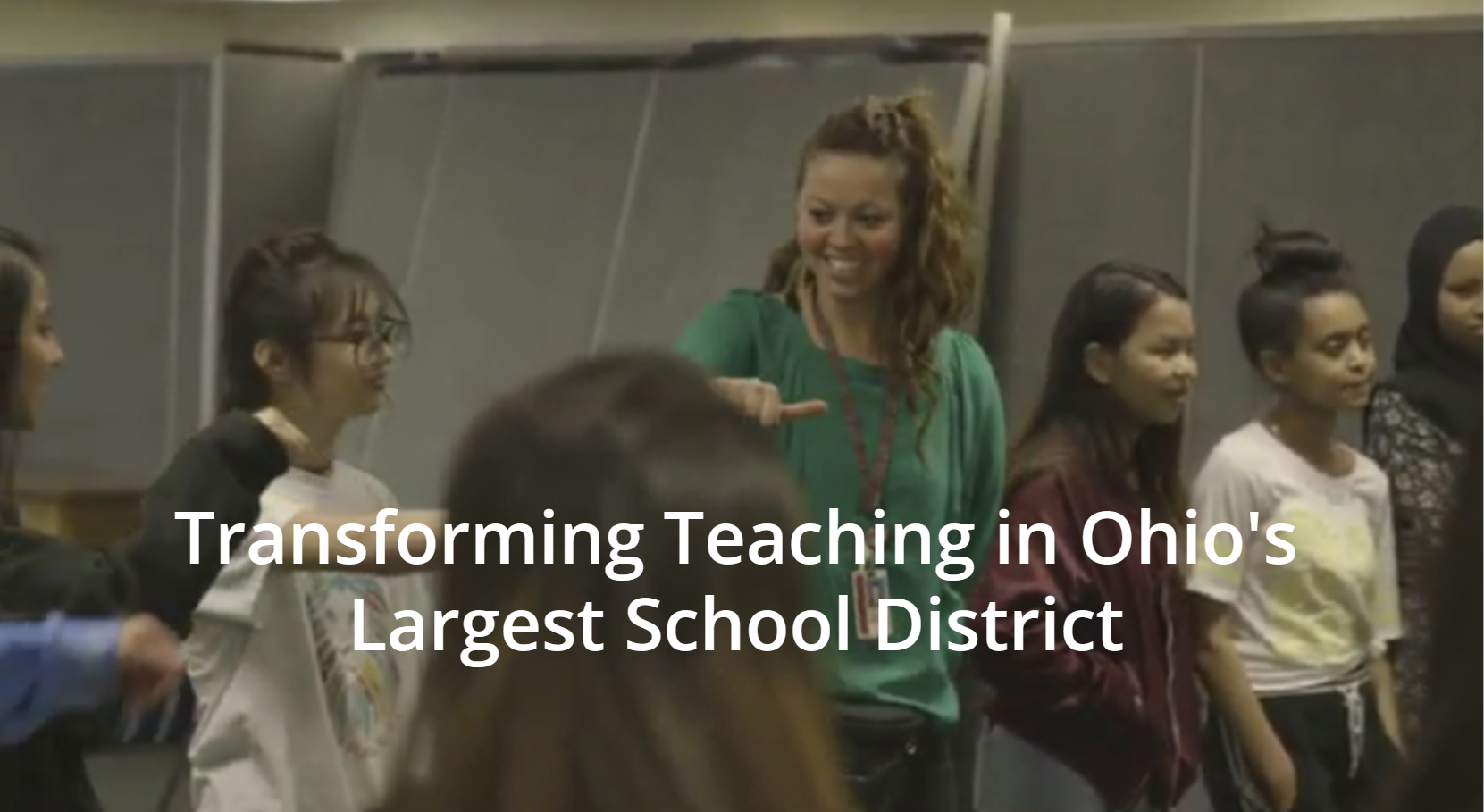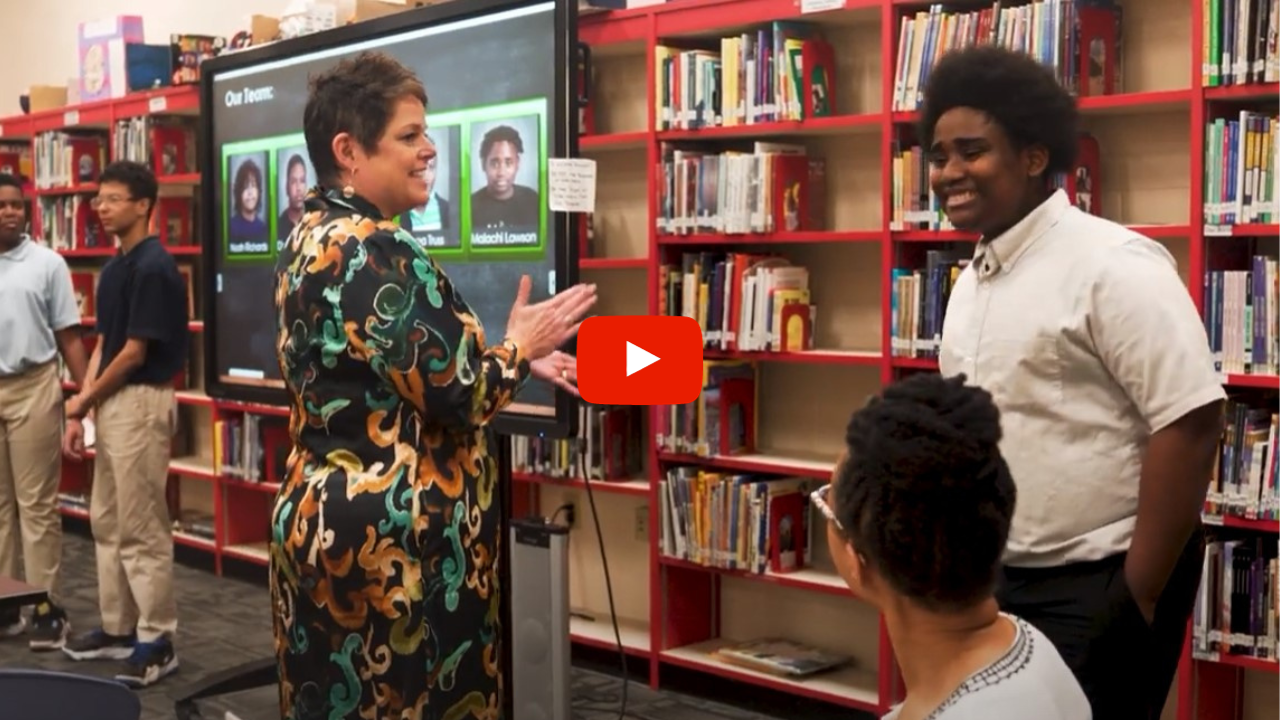In this special episode, educators who recently attended the Workshops for Entrepreneurial Studies share their inspiring plans for courses and programs in entrepreneurship, history, economics, math, science and more.
Do School Better: A Podcast for People Who Want to Transform Education - Listen to more episodes here
Alison Tanker: Hey, Doris!
Doris Korda: Hey, Alison.
Alison Tanker: Just came off a couple of our workshops!
Doris Korda: Yes, we did!
Alison Tanker: How’re you feeling?
Doris Korda: I feel fantastic. I’m completely energized by seeing what these guys are going to do. We have educators from all over coming to build programs, we make sure that people coming are coming because they want to build things, and they want to build things in K12 schools, academic programs. And it’s impossible to go through this without being completely optimistic and hopeful about education.
Alison Tanker: That’s the truth.
Doris Korda: Maria Montessori said that education is the path to lasting peace, I believe that. And if the people who came to these workshops are representative of what we’ve got out there, which I believe they are, then we have reason to be hopeful. When we talk about what’s wrong with education, it isn’t the teachers. It’s the system. And we saw that. So, I’m very hopeful. How did you feel about it?
Alison Tanker: Great. It is, it’s inspiring to be around this group of people who are ready to make change, who are stepping forward and taking a risk and wanting to try something new. It’s energizing to be around, watching them connect and collaborate and design these new pilots for what they’re gonna implement in their schools. It was fantastic. And, overall, I think it was about 53 people we trained, from…
Doris Korda: In the last two, yeah.
Alison Tanker: Yep, in the last couple here, that were from 15 states and 4 countries, which is pretty cool. The breakdown across as well was about 51% were working with public school students and 49% are working with the independent schools.
Doris Korda: Yeah, so we go into these, and we have…we keep ’em small, so that the people who are there can really get what they need to come out and implement programs. So that they get what they need, the tools, the methods, the practices, everything. And the time to design their programs. And the designing part of the workshops is the most exciting for me. Working with teachers, with administrators, who are themselves doing crazy amounts of work to recreate and redesign and new design programs that are going to transform the lives of their students. It’s impossible not to come out really inspired. I love what we’re going to do in this episode, because we’re just going to hear from the folks who came to our most recent workshops about what they’re doing and what they’re building.
Alison Tanker: Yeah, so first up we’re going to hear from Kesha Conway and Lisa Raffa of Leadership Ashtabula and Lakeside High School, then Dee Mecham from The Bishop’s School, after that is Joseph Taylor of Deerfield High School, Gara Field from Moses Brown School, lastly is Deairra Hobson from Mount Vernon Presbyterian School.
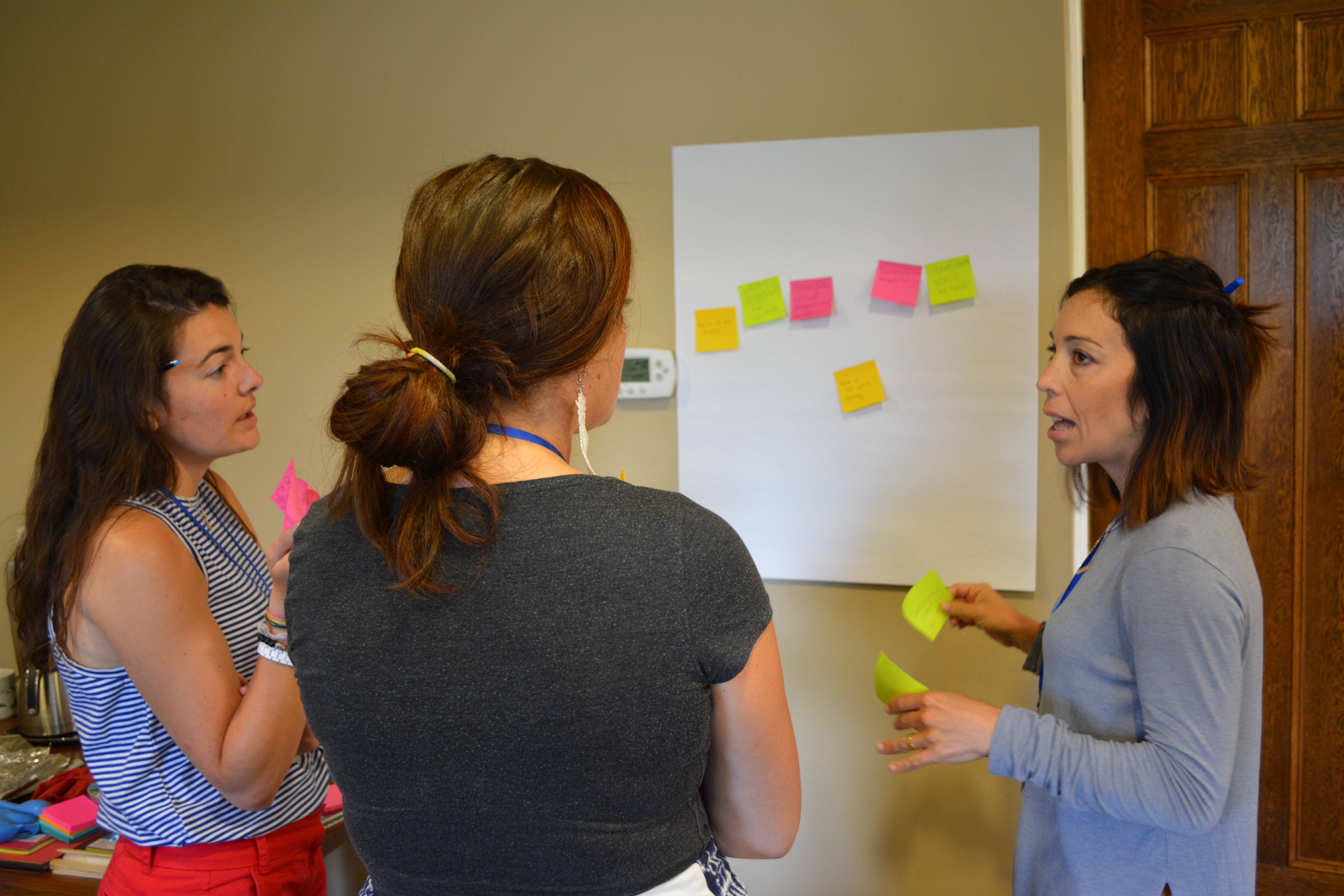
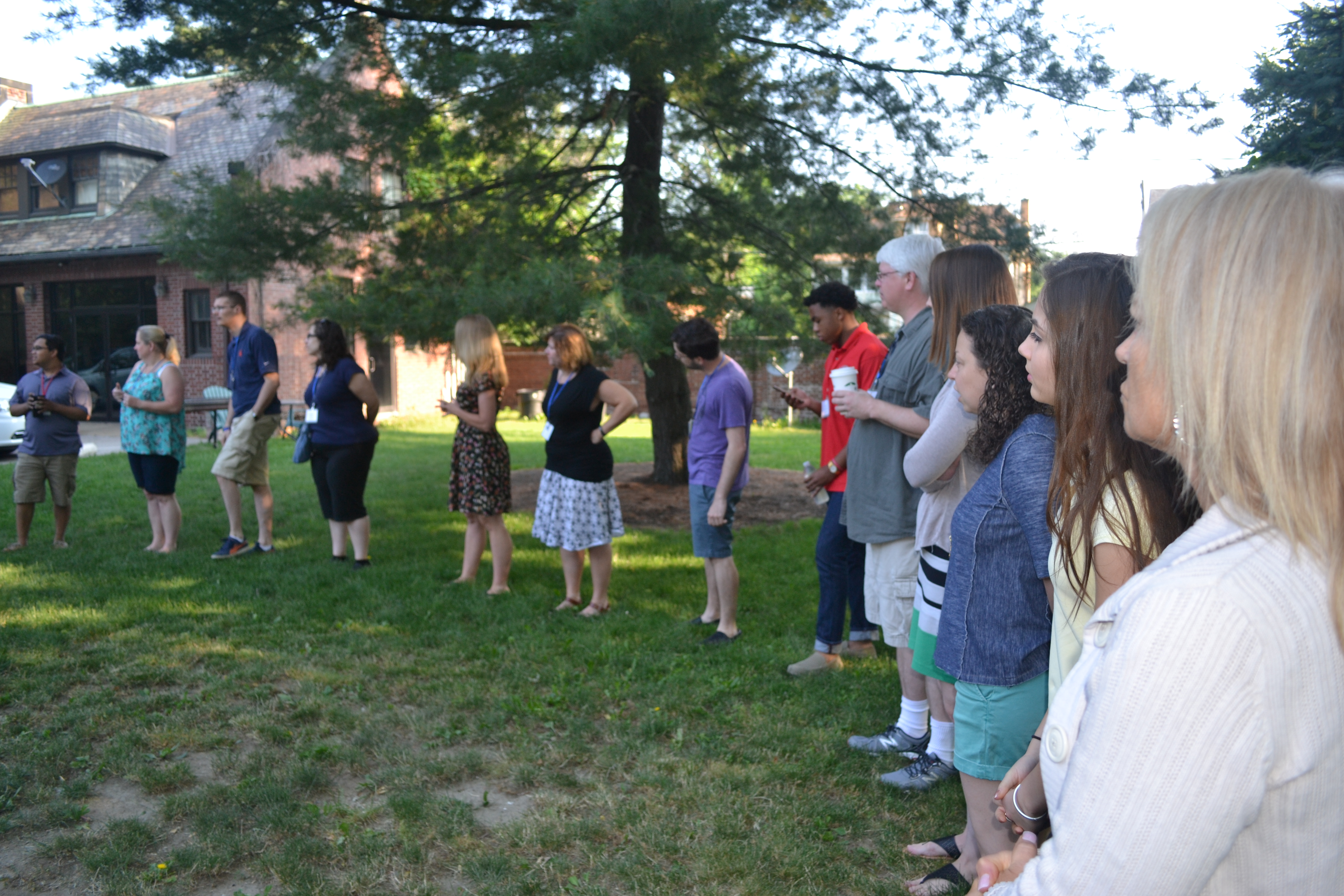
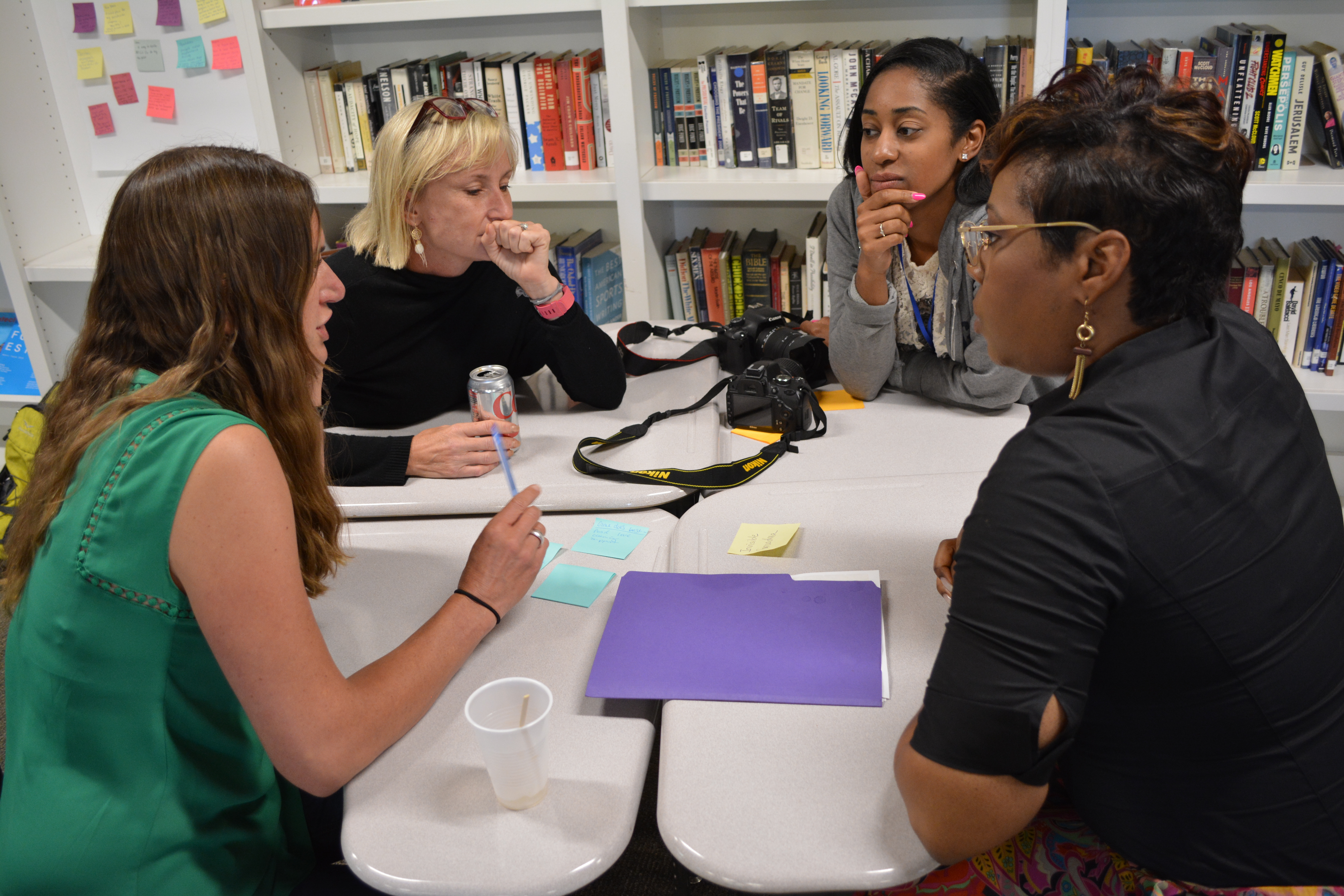
Kesha Conway: We’re going to pilot, we’re going use the first three weeks of her government class, which is a tested class, meaning that it’s a requirement for all Ohio students in public schools for their diploma, to go through government. And so we’re going use the first three weeks of the class and we are going to do, we’re going to present the kids with an unsolved problem that has to do with local government…
Lisa Raffa: And then take an idea, problem-solving based, a problem within our community, and really excited about the beginning stages because we think we know our community, right? We’ve lived there, I’ve lived there forever, Kesha’s lived there for a very long time, and it’s going to be so cool to find out what the kids see as the problem. And then, I feel like that is going to engage them into their community, into a problem, solve the problem, present the problem, and in the interim, we’re going to guide the kids to some solutions in their own community, while learning about local government: the organization, the structure, the impact that they might have as citizens in the community. And still get those learning contents in, still get those curriculums, ideas, and the content that has to be given.
Dee Mecham: I think one of the reasons I see so many people being successful with what they’ve done from this workshop is that Doris says, “Start with just one project. Start with a pilot.” Because I think too many times people go to workshops in the summer, and they think they have to redesign their entire course. And sometimes that’s the way the conferences pitch it. You know? And she’s like, “No, just take one little piece.” And that appeals to me as an economist because it’s all marginal…marginal analysis. Everything starts one step at a time, and you start with that project and see how that works, and add another one, and so, like I said, my long vision’s there. We’re going to start with a couple projects this year, AP Econ, AP Micro with entrepreneurship the following year. Maybe each year after that roll out another one of these interdisciplinary ideas.
Joseph Taylor: So, the water project that I described before, I’m really excited about, and I’ve got a bunch of kids that are excited about it, too. It’s really not about the water project. It’s about providing an opportunity for kids, of course, but it’s really about coming back and showing our teachers that this can be done and that this can be powerful and taking what we’re going to do with the project, and then putting that in the classroom and giving them some examples. I think one of the things that really crystallized for us here was that we have to go back and teach this, right? But I think in spending some time here and discussing and talking to Doris, what we’ve decided is that we’re going to go back and we’re going to run the interdisciplinary project very much the way that she’s run her class, and then use that to propose an ongoing class. We’re not sure what we’re going to call that yet. Maybe it’s STEAM, maybe for the first year maybe it is just the water project, right? But it’s a class where we’ve actually built time into the academic calendar for kids and teachers to come together in an interdisciplinary way and solve real problems.
Gara Field: One thing that is going to help us shape the freshman experience in a way that will be transformative in terms of social innovation and entrepreneurship. That’s big picture for us, and this kind of helped us crystallize and clarify what we know we want to do, and give us tools for how to do it. And so, it’s going to be transformative pedagogically, but helping us build out systems that impact a lot of kids.
Deairra Hobson: So when I came, I was thinking just design a course that for the students was more operation. Now it’s a lot bigger. When I spoke to Doris about my ideas, we were able to build something that would be great for the school in terms of allowing the students to solve other people problems and then using that entrepreneurial mindset to then run a business. I think it’s going to be really, really good for them. And then I was thinking about some of the PBL projects in my class that have nothing to do with entrepreneurship but using this model. So one of the projects that I’m really pleased with is this social justice project where students use math to analyze the prison system and determine if there are injustices based off race or gender. So now what I’m thinking is, I’m thinking two different things, either just for building empathy purposes, you start with these nonprofits that are telling their story and I’m thinking either they do their research and now purpose something to solve whatever problem these nonprofits might be facing or they still come up with their own and purpose some sort of social reform that could negate the trend or turn it the other way.
Alison Tanker: In this next section we’ll hear from Daniel de Leon of Sandia Preparatory School, Sarah Rhoads of Columbus City Preparatory School for Girls, Donielle Albrecht from John Cooper School, Jennie Becker and Julia Hodges of Hawken School, and finally Jacquelyn Clemens from Open Doors Academy
Daniel de Leon: The plan has been to offer this particular course as…we’re calling it a capstone for our senior students. We want this course to provide kind of the bridge to the real world, experience for our seniors, to really just get them in that senior year working with and dealing with and interacting with people in their community.
Sarah Rhoads: And then, between the two of us, we came up with Impact and Inquiry, and we had…well, Pam did an amazing job of turning the Business Model Canvas into a social problem canvas, and looking at the impact, and them having to do the inquiry on the…we teach American History in eighth grade…so, them having to look at the impact of the different wars, and the different documents that were happening, and how that impacted not just that time period, but how it then relates back to today.
Pam Reed: Yeah, keeping history not just static but dynamic, so that they can see that it’s a contemporary issue, it all had to start somewhere. But using that methodology to get to that place.
Donielle Albrecht: I think it validates what I’m already doing in my econ classes, but it gives me a framework to pitch an entrepreneurship class moving forward. That the four-project idea, the value add from that would be outstanding for our students who need that problem-solving opportunity, the teamwork opportunity, some interdisciplinary activities as well, so I think that with that framework, that’s what I’ve been working on as my pilot, moving forward as I think I could pitch it and it would be well-received at our school.
Jennie Becker: Yeah, so one thing also that we’re going to try to include is a lot of the team element, a lot of the intentional design of teams and having students talk openly about their role on the team and their strengths and their weaknesses and pulling equal weight and those kind of things, because most core science classes at high schools across America have a lab partner component to it, and they do work in labs. And it varies, I’m sure, wildly, if they get to pick their partner and how much time the teacher spends talking to them about working with someone else and do they turn in work together or separately or all of that will vary for us, too, but we’re really excited to put more intention into what it’s like to work with a lab partner and what you can get out of that, because if they end up working in a science career, they’re not going to be in some isolated hole. They’ll work on a team in a lab or if they are going to go into medicine, like if they’re going to be an ER nurse, there’s like an army of them on the same shift, so it’s pretty much a part of science. We’ve sort of just always been like, “Yeah, you have a lab partner,” but we, at least, I’m sure many teachers spend more time on it than I do, but we’re excited to make it like that team component of the class.
Julia Hodges: I loved the Business Model Canvas, and so I was really excited to have sort of the “A-ha” moment of figuring out a way to transform mapping business onto the Business Model C anvas into mapping an engineering innovation onto the engineering design process, as sort of a great introduction on day one, because I’ve taught the engineering design process before and it’s just…it’s painful because it’s so boring. You’re just, like, “Here it is. Here are the steps and let’s talk about why that is,” and it’s just so much more meaningful, I think, and engaging to have kids pick, like, all right, the airplane. How did the Wright brothers follow the engineering design process? And map out what went where, and what their process was and how many iterations they went through to get to their final project.
Jacquelyn Clemens: So, I love the idea of entrepreneurship. I love the idea of kids, you know, learning through entrepreneurship and the creativity that comes with that. So, I’m here because I’m hoping to follow this model and kind of enhance the entrepreneurship experience beyond, you know, lemonade and business and kind of into more like social awareness and change like within their community.
Alison Tanker: Isn’t it amazing to hear the variety of programs they are designing? I can’t wait to follow up and see how they implement.

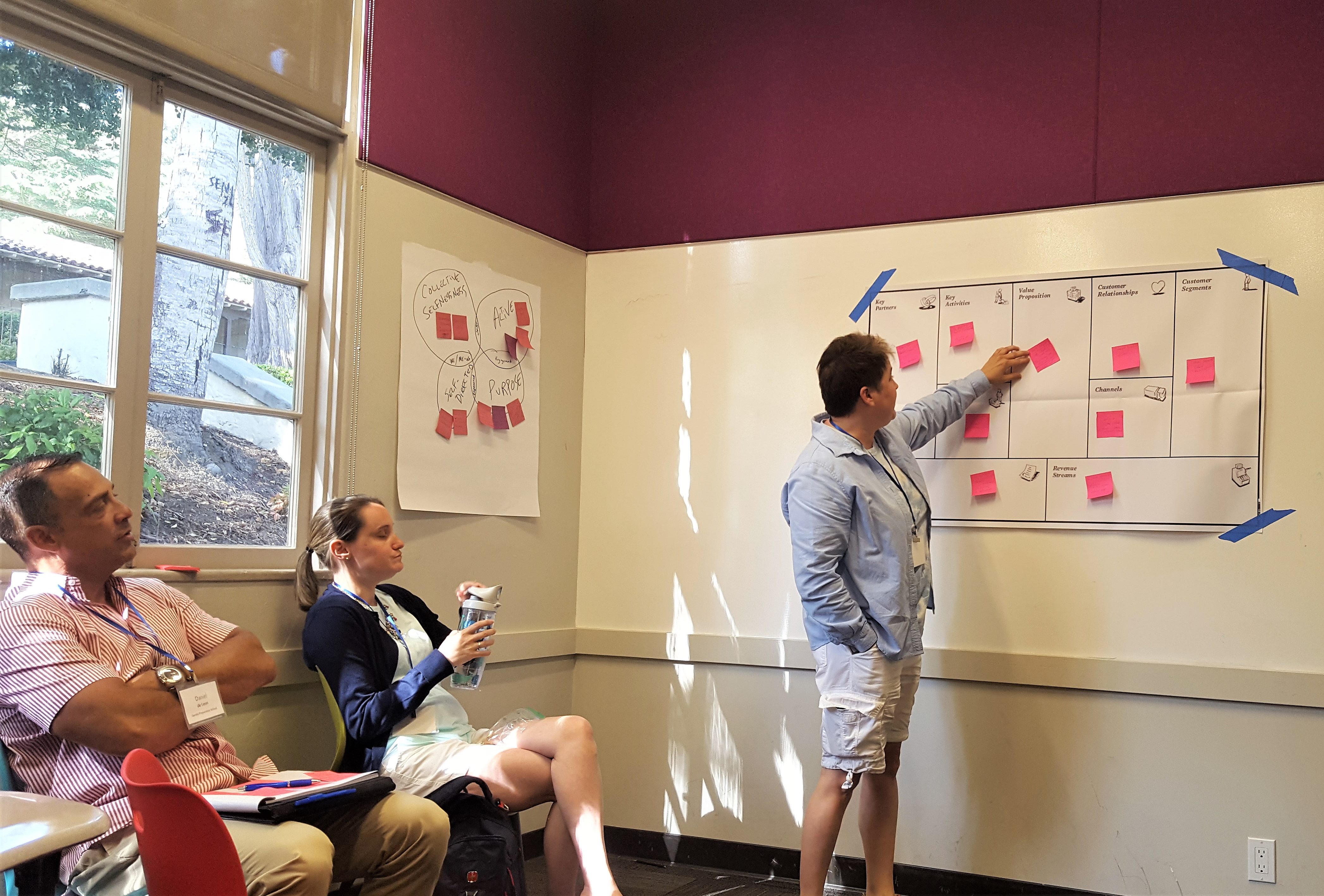
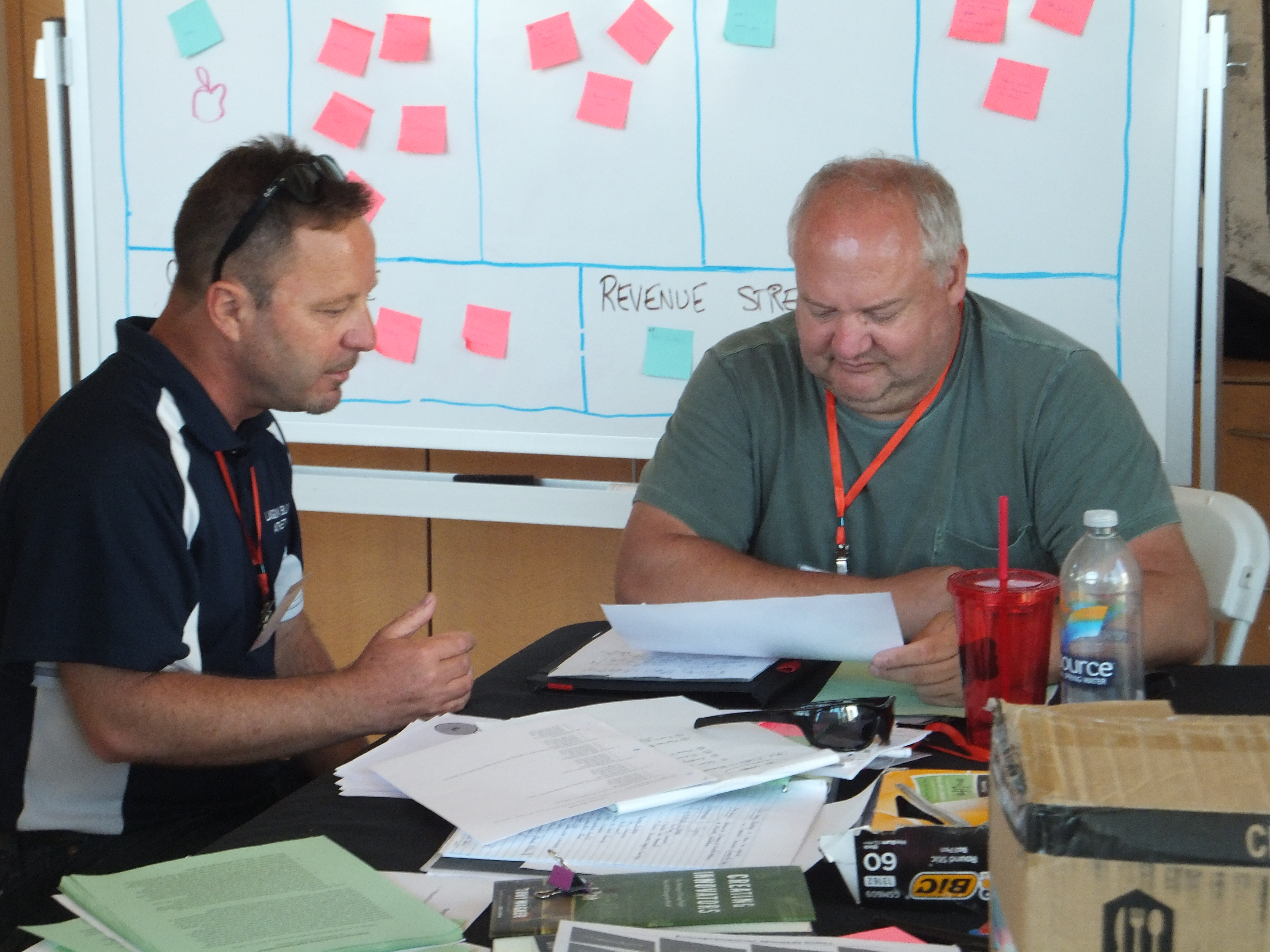
Doris Korda: Absolutely, and as important as designing the curriculum is, at least as important if not more important is how you actually teach it and the mindset shift that happens with the educators in this workshop is necessary. And the way we do that is I teach the teachers the way I teach my students, and they go through experiences that their students will go through, and then we reflect on what did you just experience? Why did I have you do it that way, etc.? And it’s really interesting also, every time we do these workshops, I learn from seeing how they’ve experienced it, what they’ve come out of that with, how well or not that equips them to implement themselves. And so, I think it’s interesting to hear as teachers are thinking about implementing entirely different types of academic programs, they’re thinking about how they need to approach the actual practice of teaching differently.
Alison Tanker: Yeah, so in this section we’ll hear from Adam Colombo of St. Anne’s Belfield School, Surin Kim from University of Nebraska Lincoln, Sean Wheeler from Design Lab Early College High School, and then Annette Lesak from Francis W. Parker School, lastly we have Pam Reed from Columbus City Preparatory School for Girls,
Adam Colombo: Oh, unbelievable amounts of resources in addition to just kind of the confidence to change what it is that I’ve been doing for the last decade. I told Doris this last night, that I have no doubt that I’ll be able to go back and do some of the entrepreneurship things that she’s done here in my pilot program, and that’s no longer part of my concern. Now, I’m having a hard time also teaching my math and economics courses with an older methodology, that I feel like I might be doing those students a disservice when I’m using a completely different set of ideals to teach my entrepreneurship program. And so, now my mind is going into, what is it that I want to change about my math and my economics courses that would start to institute a lot of the same kind of dynamic that I hope I can build in the entrepreneurship program.
Surin Kim: I think second, really, kind of amazing thing about this workshop for me, was that you guys have a real kind of philosophy like behind backing this program, and it’s really not about just entrepreneurship, but it’s really about youth empowerment, it’s about the different process and how we are going to change the educational system to really empower youth for the future of the society.
Sean Wheeler: I like the idea of descriptive teaching rather than prescriptive, almost everything we do in education is prescriptive. We have the standards, we have everything else, but really what happens in, from what I can tell in the videos I’ve seen, I’ve discussed this with educators who have gone through this before, is the idea that we’re describing to the students their learning. Right, so at the center of the learning isn’t some standard or objective, at the center of the learning is the experience of learning. You know learning is the most rarely used word in education. Right? You can go to any opening night of any school, in the upcoming months, and if you listen for the word learning, you won’t hear it. You’ll hear rules, social media and texting, cyberbullying, and a million things, tests and work, the word learning never comes up. And so, I really appreciate, during this conference, during these sessions, the absolute focus on the learning experience of the kid, unrelated to this very false prescriptive way of doing things.
Annette Lesak: I honestly think it was my one-to-one with Doris, I think, that if I’m hearing that somebody else has the confidence in me to do what I need to do to prepare for this class, one of the things she said to me was that, like, “You are the artist, this is your canvas, you have the ability to customize this class,” in a way that pertains to my strengths and my goals for my students, so I think that was really empowering to hear that.
Pam Reed: I think it’s the power of possibility. It’s not that you need permission in a public or urban school to do innovative things, but you kind of do. Like, you see the possibility of what works, like, it’s almost this tantalizing thing. It works in these other places, these private schools or these suburban schools or these other places, but how could it possibly work in our school? But the power of possibility is, absolutely. I mean, it is a mind shift, I think that’s the biggest thing, it is. But it’s almost like saying yes to something that like, this is who I am as a teacher. And saying yes, you have the permission to do this, number one, but these are all the amazing things that can happen once you do it, and seeing it, and getting a space to explore it is pretty amazing, so.
Alison Tanker: Next up we have Julie Michael Smith from Youngstown State University, Beth Donavon from Falmouth High School, Lisa Raffa of Lakeside High School, Brent Powell of Derryfield School.
Julie Michael Smith: And it’s really a treat to learn more, because I think there’s a lot of really compelling elements that particularly the districts and educators in my community can benefit from. So, this has been a great opportunity to learn about this teaching methodology, and I love that it’s the Korda Method, because I now I can finally give a name to it and call it something…
Beth Donavon: You know, I’m very excited. I woke up in the middle of the night last night and I said, “This is not just a class, this is a way of teaching,” and if you can incorporate a little bit, I mean, I don’t mean to be repeating what Doris said, but you can incorporate a little into each class, and then a little bit more, you get more comfortable with it and the kids do, and they’re getting so much more out of your class.
Lisa Raffa: Honestly, I came in and I thought to myself, “I’m getting old, I’ve been doing this for a long time, I really need a new spark.” I think it was energizing for me to meet all these people and this new methodology. I mean, throughout the years, I’ve learned a lot of different strategies, a lot of different instructional techniques. And I can say that I really do think that this is going to be very beneficial for me and for my building and for my community, which is one of the other reasons why I originally said I want to do something to better my community.
Brent Powell: I’m so energized by this method. It’s the first, kind of, I don’t want to use a term that you all would use, but it’s the first kind of curriculum design kind of method and organization, like, understanding by design, when I first encountered it, was equally compelling, but this is more meaningful with student engagement, you know.
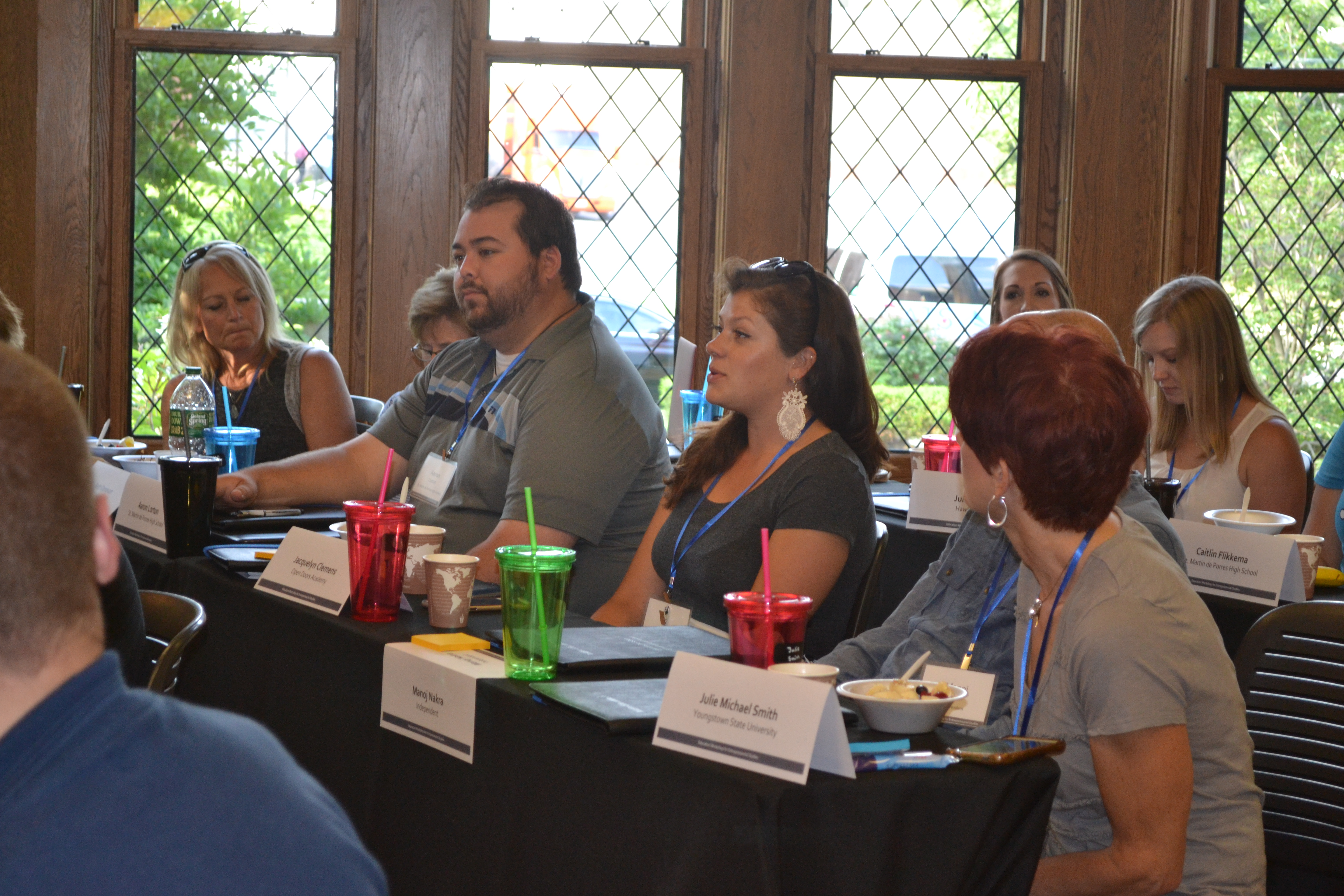
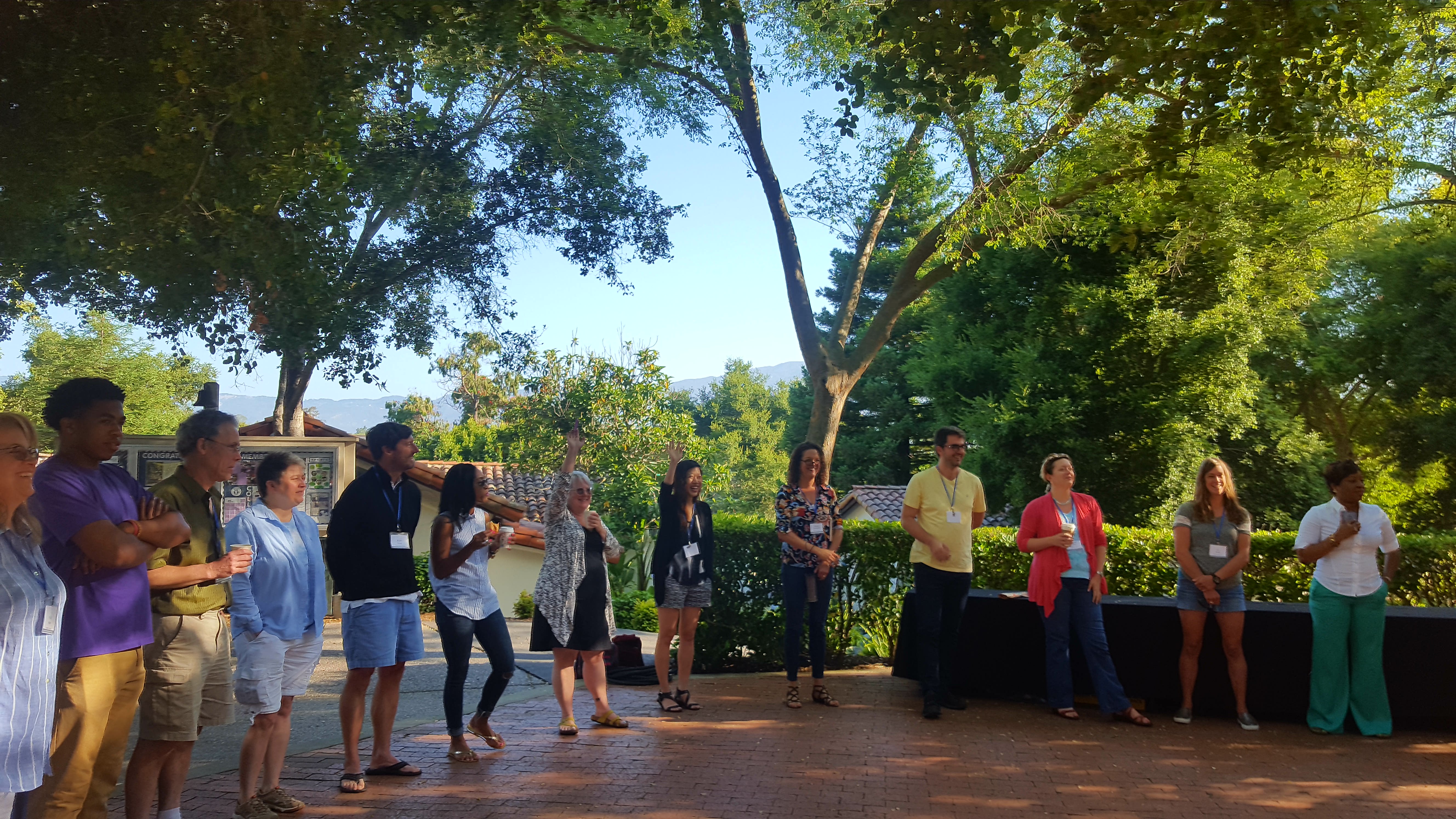
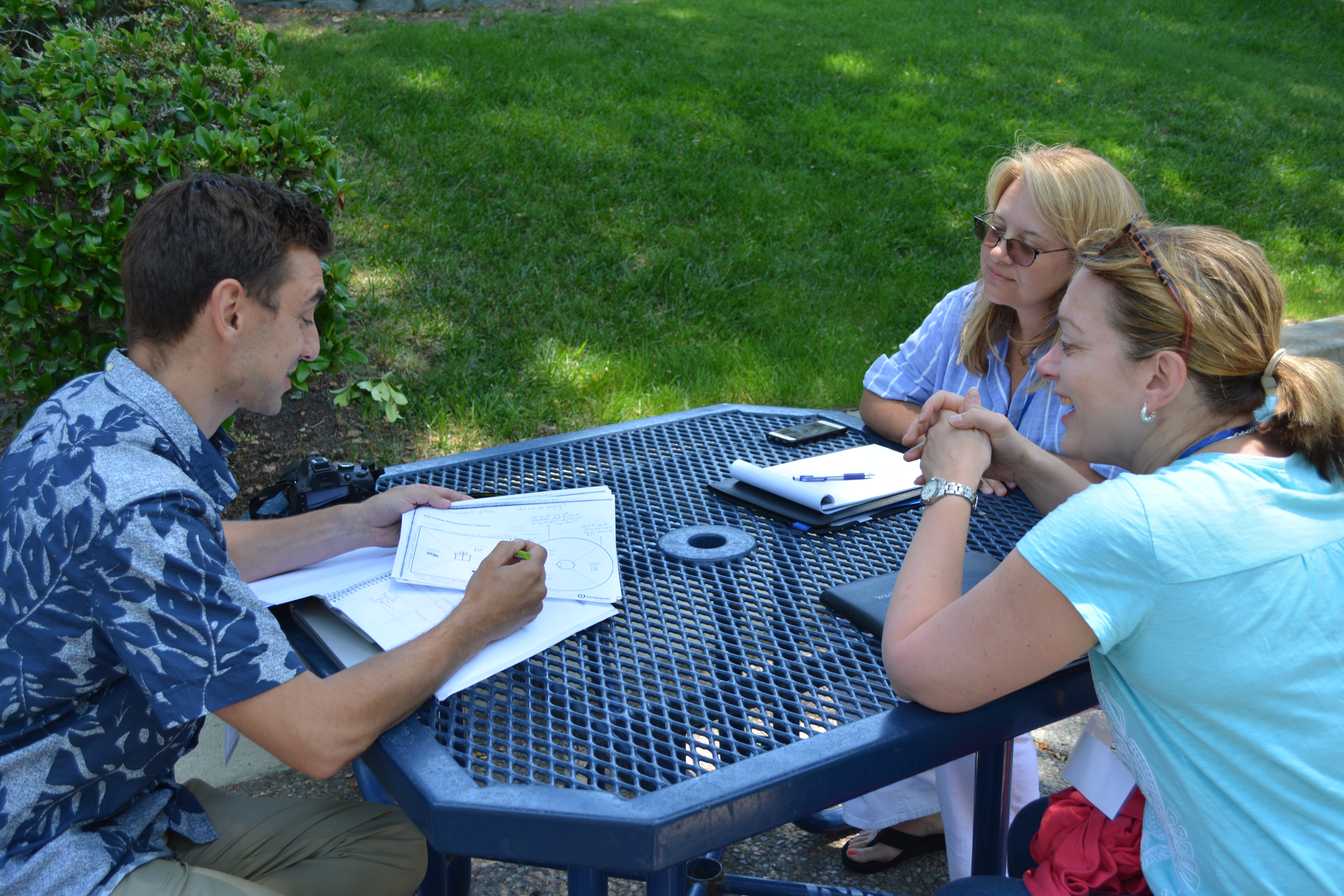
Alison Tanker: In this final section you’ll hear from Jodie Woodruff of The Met School, Hollis Liggon, Christine Saunders and Kim Ware of Hutchison School, then Emily Macleish from Design Lab Early College High School and finally we will hear from Oscar Gomez and Julian Martinez of Suricata Labs
Jodie Woodruff: So, we do a lot of individualized work with our students, but I’m really looking at how do I do group work in a more productive way that can benefit, like a mutual benefit between business and kids. And so, this is a really nice model that fits that, but I think we just take our foundation and build on it. I think these are the tools, that we really need to do that.
Christine Saunders: For me, it’s the fact that you modeled a lot of possible ways to approach lessons, problems, even frameworks for coursework, activities, and what I’ve appreciated most is there are multiple inroads, so it doesn’t matter, our school’s resources vary greatly from some of the people we’ve met, but our school…and I say resources as time, money, space, site of students, teacher leaders, all of that, agency access, but there’s something for everybody to take away and even for our different grade levels I feel like I’m walking away with not just possibilities but manageable possibilities. Some that are three years out, some that are…we’re able to implement right now, this fall. I hope so.
Hollis Liggon: Right. One of the most surprising takeaways for me, she labelled de-schooling, the idea that homework assignment, in advance we were given a homework assignment. It said, “Well, you can wait and do it that first night,” and I thought, well, I’m going to wait because clearly they’re going teach me what all these things mean and then I can go home and do my homework, it’ll be easy and fine, but you didn’t. And so I really had to struggle through it, and go back and look at my notes, and reread, and try and figure it out, and then I slept on it, there was that incubation period, and then I could kind of organize it, and while I still didn’t get it all perfectly, that whole exercise, and it didn’t take a ton of time, and it was scary to do. But it was so much more interesting, and we have a tendency as teachers, I think, to spoon-feed a lot of information, and by that I might even just mean, “Read these articles,” or, “Here are your questions and here’s where you can find the answer, now go do it,” but this felt more like I had to dig in and just maybe fail, which I don’t like doing. So, it was hard, but meaningful and rewarding and kind of energizing, and I like the thought of doing that with kids. One of them is the ability to question and to research something, not on the surface level but really dig down into research, and figure out what you need to know, and how you can find that out, and the problem-solving skills that they will learn. And then, the empowerment and confidence that comes from having done that successfully.
Christine Saunders: Yeah, and for me, all of that, driven by putting yourself in a client’s shoes, or another’s shoes so that the empathy part of it, which we talked about and I think we do successfully in schools, but this is gonna be deeper and richer. And you can tell that because they’re, those questions that we want them to generate, are all going to have to come from another person’s needs, or another organization’s needs or whoever, or our school’s needs, when we’re doing in-house projects.
Kim Ware: The students being here was really a plus to hear from them and to hear their experience just really kind of help me hone in on I should continue doing some things this way or mix it up and do it this way. I think that you did a really good job of actually giving us real and explicit and usable tools to help us go back and actually execute on what you doing.
Emily Macleish: I would say I came into this thinking like entrepreneur meant one thing, and I think myself, like I got a brand new view of what this word means and what it can look like in a classroom, which was really exciting because I think, having taught a lot of the ninth graders last year, who had this like one-track mind, but also realizing that they could take off those blinders and explore the world around them to the extent that they’d never been allowed to before. I constantly was telling them last year “I don’t have to tell you what you have to do next. You can figure it out.” And they’re like “No, no, no, what do I do next? Where are the directions? I need a rubric.” But this kind of like, supported me and gave me the confidence to say, okay, they don’t need it, they can figure it out. But also that gave me the ability to have those tools, to like lift them up and guide them in the right direction.
Oscar Gomez: It’s been amazing. I mean, to be completely honest, you totally changed our mind regarding what we could do and how we can impact the people we work with. We just came from Colombia, South America, so…
Julian Martinez: Even though our expectations were high, I think, like it accomplishes…like 10 more of what we were expecting really. Because what we found, it was like, starting to do the things way differently. It’s not just about teaching entrepreneurship, it’s about developing skills for people and kids. And it’s at a totally different level that can also become just a new way of being in school. Just like any new system.
Oscar Gomez: On top of that, it’s amazing to meet people who are thinking the same things. I mean, because sometimes you feel isolated, like am I crazy trying to change this? But to have, you know, the opportunity to meet other people which is inspiring as well, I mean, it’s not just you guys, it’s everyone who comes around, everyone has an idea, everyone is trying something different. And it just, it feels, a sense of community. And that’s amazing. I mean, it’s just not only the content, it’s also sharing and seeing and, you know, I’m feeling that you are not alone.
If you are interested in learning more about our training, visit our workshop page to learn more.


